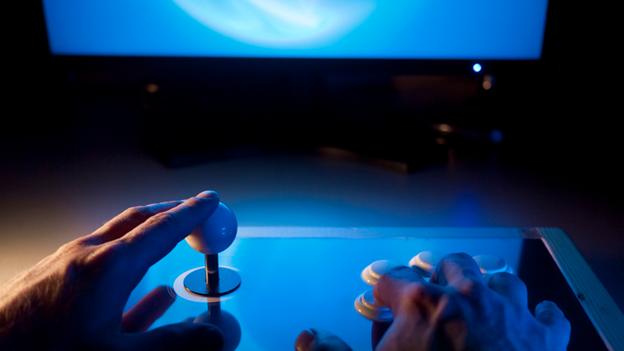What is Video Game Addiction Therapy

Despite many people around the world suffering from video game addiction, there is little information on what actually takes place during treatment. Sometimes this can be off-putting for those addicted as they begin to doubt their gaming problems or if there is even help out there. We’re here to tell you that there is definitely help to overcome gaming addiction and we’re going to explain what to expect from therapy for your addiction.
Content
What Is Gaming Addiction?

Before we jump straight into explaining the therapy we should probably start by understanding what video game addiction is. Video game addiction is a behavioural addiction which essentially means that we are addicted to the feelings that we get from playing video games as opposed to the PC itself. Gamers can be addicted to particular games like League of Legends for instance but the treatment methods are usually very similar with a few specific tweaks here and there.
Video game addiction is developed through long hours of repetitive playing video games. When doing so, video games are very good at stimulating us and releasing dopamine in our brain to satisfy our reward system. Understandably playing video games for long periods of time, for this reason, was probably really fun. But the overexposure to dopamine causes our brain to become desensitised to it.
Eventually, in order to get the same enjoyment from gaming, we need to play more and if we don’t, we begin to feel a number of withdrawal symptoms. Gaming addiction like most other behavioural addictions is a multifactorial problem. Things like our age, environment, sex, and family history do influence who is most likely to develop video game addiction.
Common Symptoms of Video Game Addiction

When it comes to something as harmless as playing video games many people wonder “how much is too much?” Funnily enough, this is also a question that experts have been trying to answer. One of the conclusions drawn by the World Health Organisation (WHO) is that video game addiction can be diagnosed through “significant impairment of family, social, educational, occupational and other important areas of functioning” over a 12 month period. This definition is supported by the data and consistencies gathered from around the world.
Based on this information, leading diagnostic manuals such as the DSM-5 have added these criteria to help to identify those with video game addiction or as they call it Internet Gaming Disorder.
The most common signs and symptoms to look out for are:
- Obsessive thinking about video games
- Feelings of irritability or agitation when not able to play
- Headaches or eye strain
- Poor sleep quality
- Neglecting personal health and hygiene
- Neglecting important responsibilities to play
- Do not enjoy previously enjoyed hobbies
- Lying to conceal gaming habits
- Decline in mental health
- Damage to personal relationships and isolation
- Repetitive strain injuries
If you feel like you have been suffering from these symptoms then it might be time to seek out the help you deserve.
How Video Game Addiction Is Treated

Treating video game addiction often doesn’t have a one size fits all approach. Every person is different and hence the intensity and effects of their addiction can vary. It is important however to arm the addict with the ability to become self-sufficient in reducing their addictive symptoms so that they can overcome their addiction in the long term.
Typically the treatment methods entail some form of detoxification or limiting the amount of video games you play. After all, we have to become acquainted with the concept of life without video games to reach our goals of quitting or cutting down. This is usually accompanied by expert tips and guidance to make this process easier. Cutting out the single most important obsession in a person’s life is a difficult task so using some effective methods to occupy themselves and break their habits is a must.
Finally, the addict will be given guidance and exercises on how to change their relationship with their thoughts that lead to gaming as well as how to develop a more fulfilling lifestyle. Many of these things can be achieved through the right guidance and a strong will to quit but consulting a medical professional is important and always advised.
Sometimes the underlying causes of video game addiction can be closely linked to other mental health conditions such as depression, OCD and many others. Therefore identifying and addressing these may subsequently improve the addiction to video games.
CBT in Gaming Addiction Therapy

Cognitive Behavioural Therapy or CBT is the main approach to treating video game addiction through therapy. CBT is based on the principle that our thoughts, actions and outlook on the world are all intimately linked. Hence by changing one we can produce better outcomes for all other aspects of our being. CBT primarily focuses on modifying the negative thoughts that lead to our addiction. Hence, during in-person therapy, you will talk through your problems about your life, impulses and things that are bothering you so that the therapist may identify the negative thoughts at the root of your addiction.
Often negative thoughts and feelings of self-doubt such as “I feel like a loser” can ruminate into “I haven’t achieved anything” and lead to rationale’s like “Playing video games makes me feel accomplished. I might as well do this” And thus the cycle of addiction starts to form. This is obviously not healthy or sustainable in the long term. So, therapists will provide guidance and information on how thoughts work and our relationship with them. Knowledge is power and sometimes it can be refreshing to gain some perspective on the details of what causes their video game addiction.
As well as this they will also be provided with a series of CBT exercises, meditations and thought experiments to help to address the relevant problems that they might be dealing with. Many of these will be given as a form of homework for gaming addicts to do in their own time to break their addictive cycles and change their negative thoughts. As we mentioned earlier, the goal of therapy is to eventually become self-sufficient in their gaming addiction treatment. Hence, online gaming addiction programs and meditations offer a viable option for those who cannot access in-person therapy.
ACT in Gaming Addiction Therapy

ACT stands for Acceptance & Commitment Therapy which is another form of therapy concerned with our thoughts and draws many similarities from CBT. Many courses of modern CBT will contain ACT and mindfulness exercises as they all coincide to produce desirable outcomes when it comes to controlling addiction.
ACT works on developing psychological flexibility and reducing the amount that we battle with our negative thoughts or cravings. When we begin to fight against negative thoughts it makes them more stressful and requires quite a lot of energy. It starts to condition us to dread these negative thoughts and cravings, so much so, that it adds another layer of suffering to them. By practising acceptance we can remove the additional pain and suffering from negative thoughts by just letting them be.
Acceptance again is usually learned and applied through exercises and meditations. The goal of these however are to help us open up to our negative thoughts as opposed to changing them. The commitment part of ACT is all about making decisions that are consistent with our values. Values are a good way to keep from going astray and falling back into these problematic cycles as they help us to understand the type of person we want to be and work towards that.
Usually, video game addicts in the midst of their addiction lose touch with their values so a considerable amount of time will be focused on determining their values through ACT practises.
One common misconception is that acceptance is the same as doing nothing. This is simply not the case. Sitting there and accepting defeat is harmful and leads back into the cycle of addiction. Whereas opening up to experiencing our negative thoughts and cravings then continuing to act in a way consistent with our values is a healthy long term solution to addiction.
The effectiveness of acceptance is far-reaching as it has been clinically proven to reduce general anxiety caused by video games as well as chronic pain and eating disorders.
Mindfulness for Gaming Addiction

Mindfulness is all about bringing our focus into the present moment. When we shift our focus into the present moment that we are currently experiencing and notice the sensations, we can help to ground ourselves and take us away from the negative thoughts we were experiencing.
For instance, when someone suffering from video game addiction begins to feel cravings to play video games they can practice mindfulness. Bringing their attention towards their breath or other focus points in order to take them away from overthinking their cravings to play.
The difficult part about mindfulness is to experience all of the sensations you are feeling in the current moment, good or bad, without judgement. Inherently we are judgemental creatures so everything we think and feel gets clouded with our own perspective. However, mindfulness teaches us to be an observer of our thoughts and emotions making them easier to process as opposed to being a product of them. Often for this reason acceptance and mindfulness are paired up to help overcome addiction.
Mindfulness in therapy for video game addiction is often used to help reduce withdrawal symptoms but also give the gamers a means to healthily deal with their emotions. Many people play video games to escape bad circumstances, emotions and such. So, when they have to experience them without their vice of gaming they can begin to get easily overwhelmed and again resort back to their cycle of playing video games. Thus we use mindfulness to make these more tolerable and act in a valued way.
Here are some top tips for practising mindfulness for getting over video game addiction. These should get us moving in the right direction:
- You don’t have to be doing something at every single moment of the day – Playing video games has heightened our desire for entertainment at all times. Although part of recovery from video games is to preoccupy ourselves to prevent us from relapsing, it’s still important to find comfort when we are not stimulated. It is okay to relax and simply… exist.
- Follow your senses and not your thoughts – When practising mindfulness it’s easy to focus on the thoughts about what we are experiencing and not the sensation itself. The problem with this is that our judgments have a habit of distracting us down long tangents and can often be an inaccurate representation of what we are experiencing. Try to follow objectively what we are seeing, smelling, hearing and feeling.
- Don’t be so hard on yourself – When focusing on your breath or experiences it’s perfectly natural for your mind to continuously wander here and there. Gently bring your attention back to your breath or experiences. Mindfulness is a skill so be kind to yourself as you practice.
We hope you found these tips helpful. If you’d like to know more about video game addiction or are interested in quitting or cutting down, The Mindful Gamer is always here to help.








